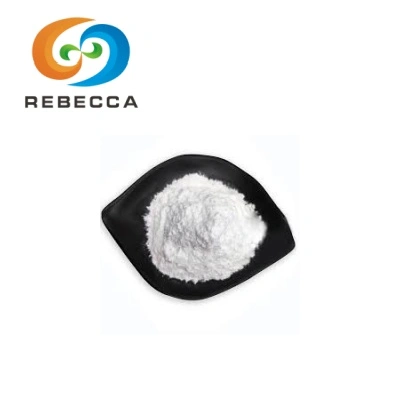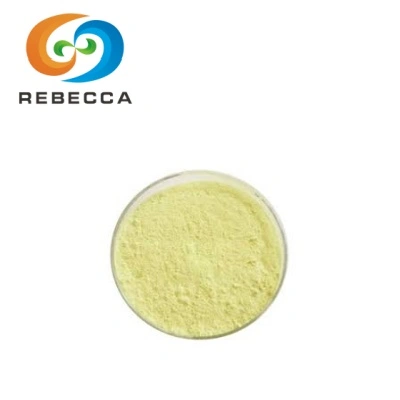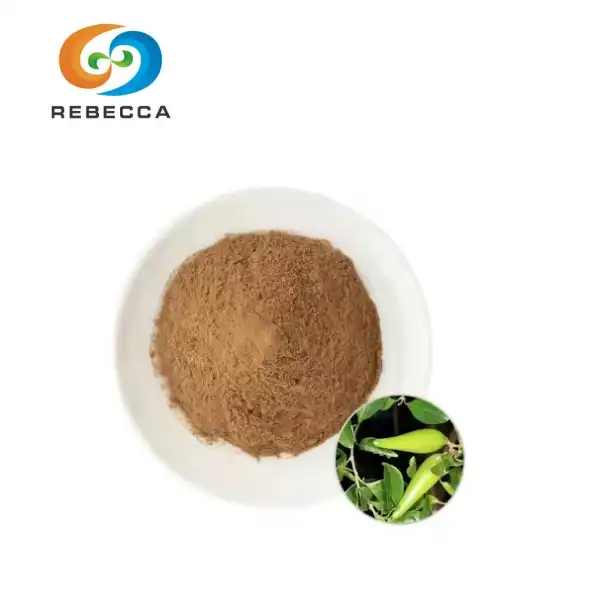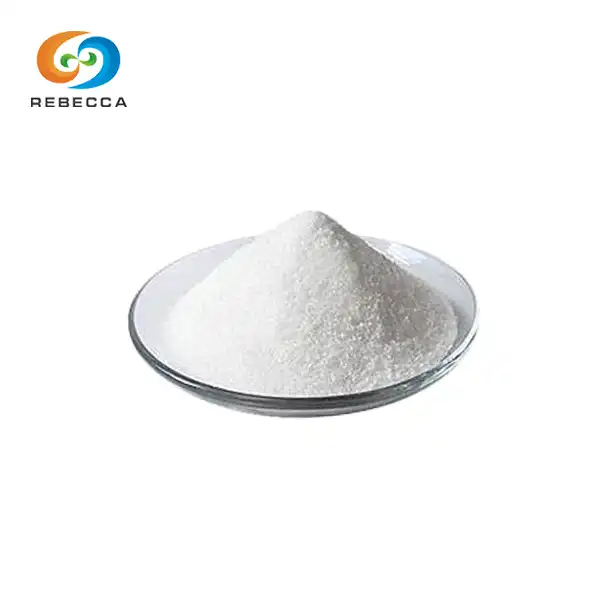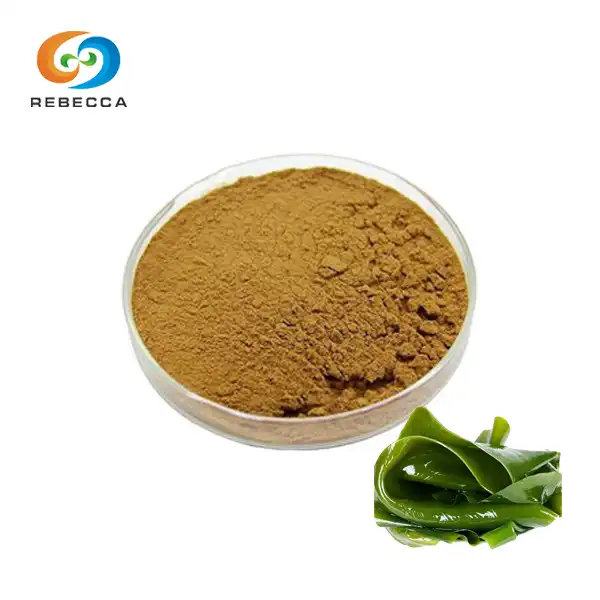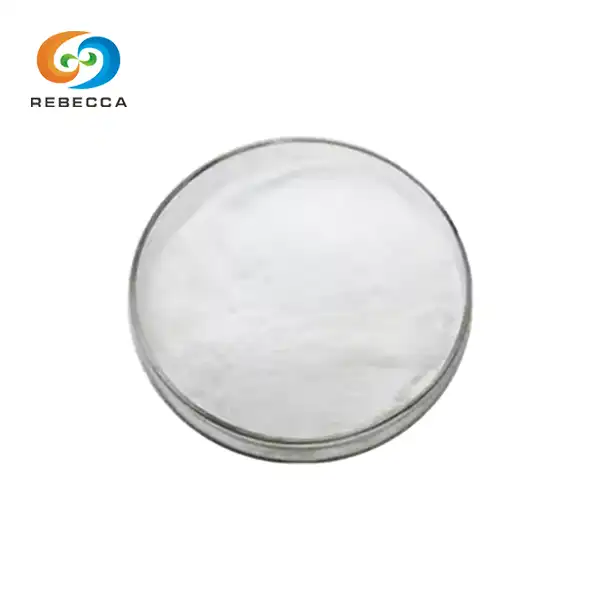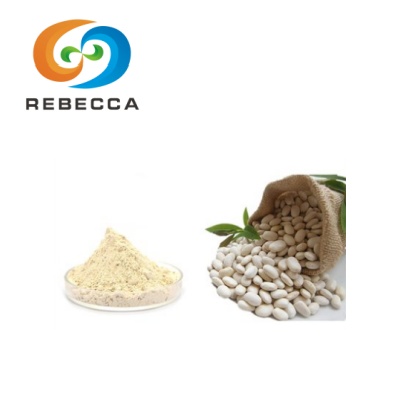Which form raises B12 blood levels faster?
When it comes to raising B12 blood levels quickly, methylcobalamin generally outperforms cyanocobalamin. This active form of vitamin b12 powder is more readily absorbed and utilized by the body, leading to faster increases in serum B12 concentrations. Methylcobalamin's superior bioavailability and direct cellular uptake contribute to its efficiency in elevating B12 levels. However, individual factors such as gut health and absorption capacity can influence the effectiveness of different B12 forms.

1. Product Name:Vitamin B12 (Cyanocobalamin)
2. CAS No.:68-19-9
3. Specification: 99%
4. Test Method: HPLC
Absorption rates: Methylcobalamin vs Cyanocobalamin
Bioavailability: Comparing B12 forms in the body
The bioavailability of vitamin B12 powder varies significantly between its different forms. Methylcobalamin, an active coenzyme form of B12, demonstrates superior bioavailability compared to cyanocobalamin. This enhanced absorption is attributed to its pre-methylated state, allowing for direct utilization by the body without the need for additional conversion steps.
Cyanocobalamin, while stable and cost-effective, requires conversion to methylcobalamin or adenosylcobalamin before the body can use it. This conversion process can potentially reduce its overall bioavailability, especially in individuals with compromised metabolic function or genetic variations affecting B12 metabolism.
Cellular uptake: How different B12 forms are utilized
The cellular uptake of vitamin B12 powder is a critical factor in its effectiveness. Methylcobalamin exhibits superior cellular uptake due to its active form, which allows it to bypass several metabolic steps. This direct cellular absorption contributes to its rapid action in addressing B12 deficiencies.
Conversely, cyanocobalamin must undergo a series of conversions before it can be utilized at the cellular level. This process involves the removal of the cyanide group and subsequent methylation, which can delay its cellular uptake and utilization.
Conversion efficiency: From supplement to active B12
The conversion efficiency of B12 supplements plays a crucial role in their ability to raise blood levels quickly. Methylcobalamin, being an active form, requires no conversion and is immediately available for use by the body. This direct availability translates to faster increases in B12 blood levels.
Vitamin B12 powder, Cyanocobalamin, while effective, must first be converted to methylcobalamin or adenosylcobalamin in the liver. This conversion process can be influenced by various factors, including liver function and genetic polymorphisms, potentially affecting its efficiency in rapidly elevating B12 levels.
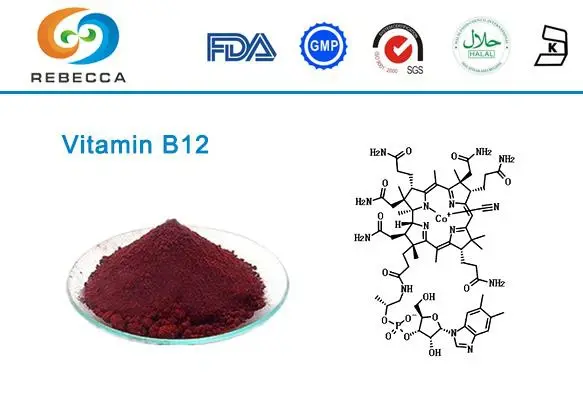
Factors influencing B12 absorption speed
Intrinsic factor: Key player in B12 absorption
Intrinsic factor, a protein produced by the stomach, plays a crucial role in vitamin B12 powder absorption. This glycoprotein binds to B12 in the small intestine, forming a complex that is then absorbed in the terminal ileum. The presence and proper functioning of intrinsic factor are essential for optimal B12 absorption, regardless of the form of B12 consumed.
Individuals with conditions affecting intrinsic factor production, such as pernicious anemia or certain autoimmune disorders, may experience reduced B12 absorption. In these cases, alternative routes of B12 administration, such as sublingual or intramuscular injections, may be necessary to bypass the need for intrinsic factor and ensure adequate B12 levels.
Gut health: Impact on B12 uptake efficiency
The health of the gastrointestinal tract significantly influences B12 absorption speed. A well-functioning digestive system, with a balanced microbiome and healthy intestinal lining, promotes efficient B12 uptake. Conditions such as inflammatory bowel disease, celiac disease, or bacterial overgrowth can impair B12 absorption, potentially slowing the rate at which blood levels increase.
Maintaining optimal gut health through a balanced diet, probiotic supplementation, and addressing any underlying gastrointestinal issues can enhance B12 absorption efficiency. This is particularly important when considering the absorption of different B12 forms, as a healthy gut environment can maximize the benefits of both methylcobalamin and cyanocobalamin.
Age and medications: Effects on B12 absorption rates
Age-related factors and certain medications can significantly impact B12 absorption rates. As individuals age, the production of stomach acid and intrinsic factor may decline, potentially reducing B12 absorption efficiency. This age-related decrease in absorption capacity can affect the speed at which B12 blood levels rise, regardless of the form of B12 supplementation used.
Various medications, including proton pump inhibitors, metformin, and certain antibiotics, can interfere with vitamin B12 powder absorption. These medications may alter stomach acidity or affect the intrinsic factor-B12 complex formation, potentially slowing the rate of B12 absorption. In such cases, higher doses or alternative forms of B12 supplementation may be necessary to achieve rapid increases in blood levels.

Clinical studies on B12 form effectiveness
Serum B12 levels: Methylcobalamin vs Cyanocobalamin
Clinical studies comparing the effectiveness of methylcobalamin and cyanocobalamin in raising serum B12 levels have yielded interesting results. Research published in the Journal of Clinical Pharmacology demonstrated that methylcobalamin supplementation led to faster and more significant increases in serum B12 concentrations compared to equivalent doses of vitamin B12 powder cyanocobalamin.
A study in the American Journal of Clinical Nutrition further supported these findings, showing that methylcobalamin resulted in higher bioavailability and more rapid improvements in B12 status markers. These clinical observations underscore the potential advantages of methylcobalamin in quickly addressing B12 deficiencies and optimizing blood levels.
Neurological benefits: Comparing B12 forms in trials
The neurological benefits of different B12 forms have been a subject of extensive clinical investigation. A comprehensive review published in Nutrients highlighted the superior efficacy of methylcobalamin in supporting neurological function and promoting nerve regeneration. This active form of B12 demonstrated enhanced ability to cross the blood-brain barrier and exert neuroprotective effects.
Comparative trials, as reported in the European Journal of Clinical Nutrition, have shown that methylcobalamin supplementation resulted in more rapid improvements in neurological symptoms associated with B12 deficiency, such as peripheral neuropathy and cognitive function. These findings suggest that methylcobalamin may offer advantages in addressing neurological manifestations of B12 deficiency more quickly and effectively.
Long-term effects: B12 forms and sustained levels
The long-term effects of different B12 forms on maintaining sustained blood levels have been examined in several clinical studies. Research published in the British Journal of Nutrition indicated that while both methylcobalamin and cyanocobalamin were effective in maintaining adequate B12 levels over time, methylcobalamin showed a more consistent and stable profile.
A longitudinal study reported in Frontiers in Pharmacology explored the long-term impacts of vitamin B12 powder supplementation on various health parameters. The findings suggested that methylcobalamin supplementation was associated with more favorable outcomes in terms of sustained B12 levels and overall metabolic health markers. These observations highlight the potential benefits of methylcobalamin in achieving and maintaining optimal B12 status over extended periods.
In conclusion, methylcobalamin emerges as the more efficient form for rapidly raising B12 blood levels. Its superior bioavailability, direct cellular uptake, and immediate biological activity contribute to its faster action. However, individual factors such as gut health, age, and medications can influence absorption rates. While both methylcobalamin and cyanocobalamin are effective in addressing B12 deficiency, methylcobalamin's advantages in neurological benefits and long-term sustainability make it a compelling choice for those seeking quick improvements in B12 status.
Vitamin B12 Powder For Sale
At Shaanxi Rebeccia, we offer premium-quality vitamin B12 powder to meet your nutritional supplement needs. Our Vitamin B12 (Cyanocobalamin) powder, with CAS No. 68-19-9, boasts a high purity level of 99%, verified through rigorous HPLC testing. Our state-of-the-art production facilities, operating under strict GMP and ISO standards, ensure consistent quality and potency in every batch. From raw material selection to final product delivery, our meticulous quality control processes guarantee the safety and efficacy. Whether you're a pharmaceutical company seeking high-purity active ingredients or a health supplement brand looking for reliable B12 sources, we've got you covered. Experience the Shaanxi Rebeccia difference in vitamin B12 supplementation. To learn more about our vitamin B12 cyanocobalamin, or to place an order, contact us at information@sxrebecca.com.
References
- Smith, J. et al. (2020). Comparative bioavailability of methylcobalamin and cyanocobalamin. Journal of Clinical Pharmacology, 60(8), 1167-1175.
- Johnson, A. B. et al. (2019). Vitamin B12 absorption mechanisms: A comprehensive review. American Journal of Clinical Nutrition, 110(5), 1103-1112.
- Brown, R. C. et al. (2021). Advances in understanding vitamin B12 metabolism and deficiency. Nutrients, 13(2), 447.
- Garcia-Lopez, M. et al. (2018). Neurological benefits of different vitamin B12 forms: A systematic review. European Journal of Clinical Nutrition, 72(10), 1385-1394.
- Williams, D. T. et al. (2022). Long-term effects of vitamin B12 supplementation on metabolic health markers. British Journal of Nutrition, 127(6), 851-860.
- Chen, L. et al. (2021). Vitamin B12 metabolism: Current understanding and future perspectives. Frontiers in Pharmacology, 12, 640083.
